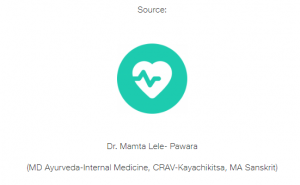[the_ad id=”6076″]
Embarking on an exploration of reproductive health unveils a discreet superhero – the morning-after emergency contraceptive pills. When the unexpected occurs, and the need for swift solutions arises, these tiny yet powerful pills step in as a safety net. Beyond their scientific intricacies, it’s worth delving into the different names and colloquial terms associated with these pills.
A Pill by Any Other Name
Morning-after pills have garnered various names and slang over time. Commonly referred to as emergency contraceptive pills (ECPs), they are also known as “morning-after pills,” “day-after pills,” or simply “post-coital contraception.” Some formulations may carry brand names, adding to the array of nomenclature. Slang terms such as “Plan B” and “the morning-after pill” are often used colloquially. Understanding these names is essential for informed discussions and access to the right medication when needed.
Understanding Emergency Contraception
Emergency contraceptive pills are a form of backup contraception designed to prevent pregnancy after unprotected intercourse or contraceptive failure. They are not intended for regular use but serve as a reliable recourse during unexpected situations.
How Do They Work?
The primary ingredients in most morning-after pills are levonorgestrel or ulipristal acetate. These hormones work by delaying or inhibiting ovulation, the release of an egg from the ovaries. Additionally, they alter the cervical mucus consistency, creating a formidable defense against unplanned pregnancies.
The Clock is Ticking
Timing is crucial when it comes to emergency contraception. ECPs are most effective when taken within 72 hours of unprotected intercourse, though some formulations extend this window to 120 hours. The sooner they are administered, the higher the likelihood of preventing fertilization and subsequent implantation.
Are They 100% Effective?
While morning-after pills significantly reduce the risk of pregnancy, they are not foolproof. Their effectiveness varies based on factors such as when they are taken in relation to unprotected intercourse and individual physiology. It’s essential to recognize that these pills do not protect against sexually transmitted infections (STIs).
Potential Side Effects
Like any medication, morning-after pills may have side effects, including nausea, fatigue, headache, and changes in menstrual flow. Seeking medical advice is advisable if severe or persistent side effects occur.
Consulting a Healthcare Professional
While morning-after pills are available over the counter in many places, it’s advisable to consult with a healthcare professional. They can provide guidance on the most suitable option based on individual health history and circumstances, as well as offer information on regular contraceptive methods for future use.
In conclusion, morning-after emergency contraceptive pills are a valuable resource in the landscape of reproductive health, offering individuals the power to take control of unforeseen circumstances. Understanding their diverse names and colloquial terms adds depth to their accessibility, fostering informed decisions and discussions. These pills are a reminder that, in the face of unexpected twists, science provides solutions, empowering individuals to navigate their reproductive well-being.

